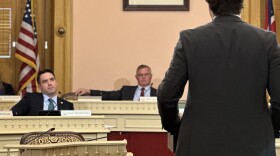As Cleveland's mayor lobbies for congressional authorization to shutter the city's downtown airport, some pilots and the head of the annual air show are pushing back.
Latest Headlines
- US-Israeli strikes continue across Iran, Iranian drones hit Azerbaijan
- Kent State University students head to Milano Cortina to learn business behind Paralympic Games
- Wall Street is betting on tariff refunds after Supreme Court ruling
- 5 things to do in NEO: Piano virtuosos, pirate adventures and more
- Ohio House leader throws cold water on bonds to fund H2Ohio effort
Editors' Picks

The assembly delegates, chosen by a lottery system, will spend several months researching and deliberating housing policies. They will then present their recommendations to city officials.
-
Democrats in the Senate were facing an uphill climb Wednesday in their push to restrain President Trump's ability to wage war against Iran.
-
Hear from Cleveland Mayor Justin Bibb, city officials and aviation experts as they discuss whether closing Burke Lakefront Airport could open new opportunities or incur unexpected costs.
-
A bill would create a pass for residents and visitors to get discounts, promotions or other benefits from attractions around Ohio, from amusement parks to museums to historic sites.
-
The images suggest that precision munitions struck other buildings, including a clinic that was also inside the complex.
-
The Cuyahoga County Medical Examiner determined the bodies of the two girls found buried in suitcases in Cleveland are half-siblings.
-
Several measures amended into House Bill 96, Ohio's biennial budget, sought to make adult content websites verify users’ ages before letting them access anything.
-
Terry Pluto talks about Chase DeLauter and a rising wave of young prospects as the Guardians turn to their farm system to strengthen a struggling outfield.
-
Developers are building more single-family houses for renting. That can lower prices for both renters and buyers.
-
Voters headed to the polls Tuesday in the first primaries of the midterm election season. The latest results from Texas and North Carolina.






















